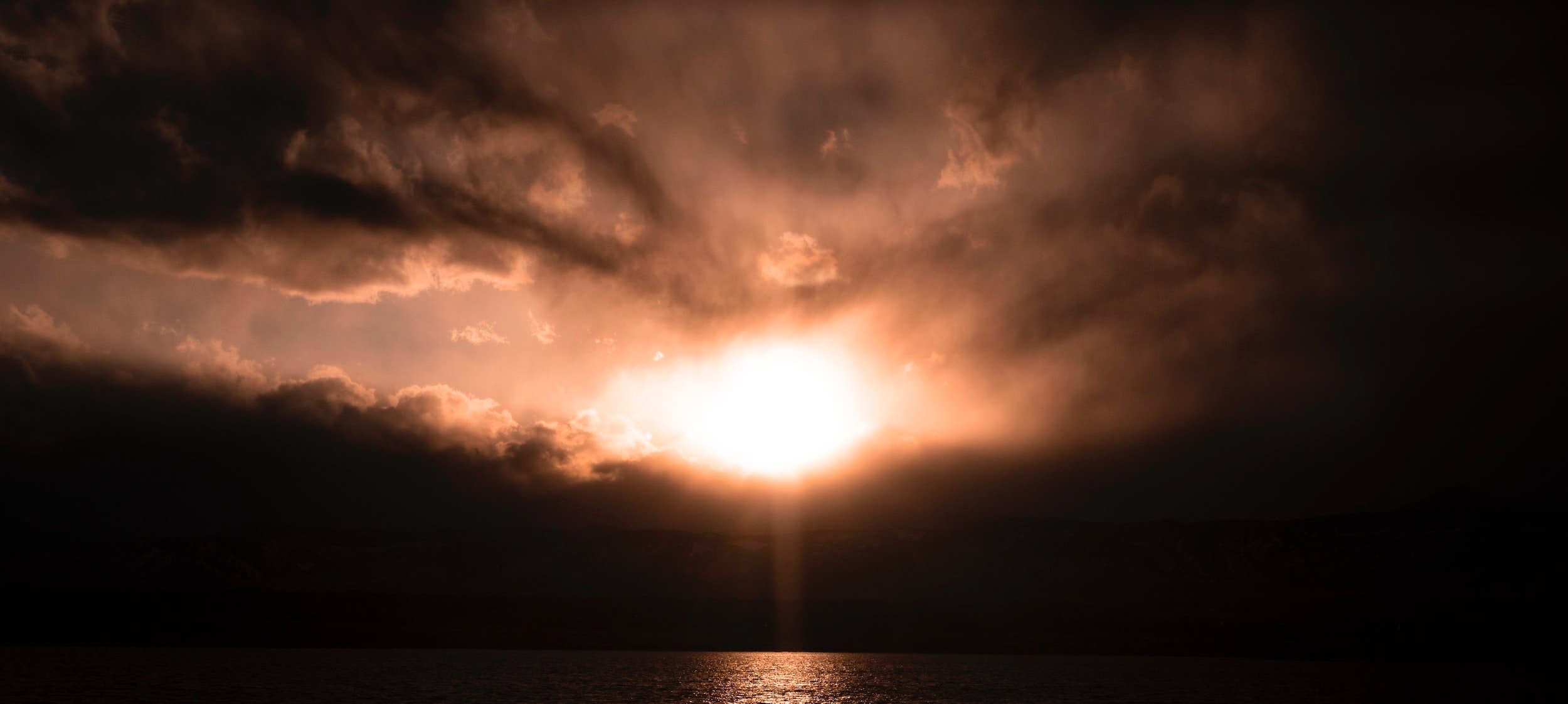
Nuclear Winter: Poetry of the Apocalypse
The Unthinkable

NUCLEAR WINTER is an attempt to think about the unthinkable consequences of a full-blown, planetary nuclear war. What are the thoughts and lives of those who survive the initial devastation in a world where the cold of winter is hot with radiation and even first snowfalls are ashen grey?
-
Nuclear Winter presents the viewpoints of individual nuclear holocaust victims, some adult, some children, in different locations and circumstances, who have survived the first shock of a major nuclear war. The poems are arranged in the order I wrote them between October and December 1985. They reveal a world in the grip of nuclear winter where snow and ice, changed weather patterns and grey clouded skies are made worse by the radioactive refuse of a planetary nuclear battleground.
My purpose is to alert the reader to the danger of a major nuclear war. I do not believe such a war is likely today, but it is more likely than it was ten or twenty years ago and if something is not done to prevent it, such a war will grow increasingly possible. Read the poems, see the consequences and avert the war.
(February 1986)
-
T.E. Lawrence wrote that the Arab revolt in the desert was a fight for individual freedom in which morality and the rights of the Arab nation were consumed in the quest for victory. Now, nearly three-quarters of a century later, another fight for Arab freedom from outside interference unfolds the specter of an even more potentially cataclysmic confrontation using the most sinister weapon of the First World War - poison gas - along with the ultimate invention of military destruction, the nuclear bomb. Have we come back to the Garden of Eden to demonstrate that we can now throw ourselves out?
The emergence of a less bipolar world has not led to the lessening of the threat of nuclear war. Every state capable of forging a nuclear weapon awaits only its own fevered scenario for its use, an attack always couched in defensive terms and consistently at the expense of innocent civilians and, if enough payers can be found, the destruction of humanity.
There are no poems from the desert because the margin of tolerance for stupidity is too narrow to encompass survivors of a nuclear battlefield. The desert is not so forgiving.
-
“I am thankful for the help and encouragement I received in the publication of this book, from Dick and Ginny Dromgoole, Milton and Martha Bell, and especially from my wife, Lindy.”
— Dan Mings
-
“These haunting passages by S. Daniel Mings starkly depict the horror of the nuclear catastrophe humans have built for themselves. These disturbing images are reality hopefully never realized.”
— Richard Turco, co-author TAPPS report on nuclear winter
“Dr. Mings’s message is without ambiguity.”
— Bill Moyers, journalist
Computer Down
The computer went down
and lost my reverie
of what we’ve lost.
Did we have a right
to expect our fun
to last forever?
Like a precious dead one,
one expects to be in that room
when you walk in,
I keep trying to turn the channel
and catch the news
when there isn’t any.
—a man
White Mountains
North America
My Sister
My sister escaped the firewall
that billowed out from the downtown;
she escaped the first, the worst, ashfall
that made the neighborhood look lunar.
When we began to come out
the tracks of her big rubber boots were always first
to show the safe way to food or water.
In the evening at the safeplace she would be the one
to pick up a crying child and quiet it
or sing to pass the storm time.
Now that I am dying
she will be the last person
and I think it bothers her to be alone.
—teenage boy
Upper Mississippi Valley
North America
Soldier’s Psalm
Put your faith in God
and your trust in one another
and remember the 91st Psalm:
“You will not fear the terror of the night
nor the arrow that flies by day,
nor the pestilence of the darkness
nor the destruction that wastes at noonday …
A thousand may fall at your side,
ten thousand at your right hand,
but it will not come near you…
For He will give His angels charge over you,
to guard you in all your ways.”
We believed, we trusted and we died
in the destruction that wastes at noonday.
—a young man
Rhine Graben
Europe
